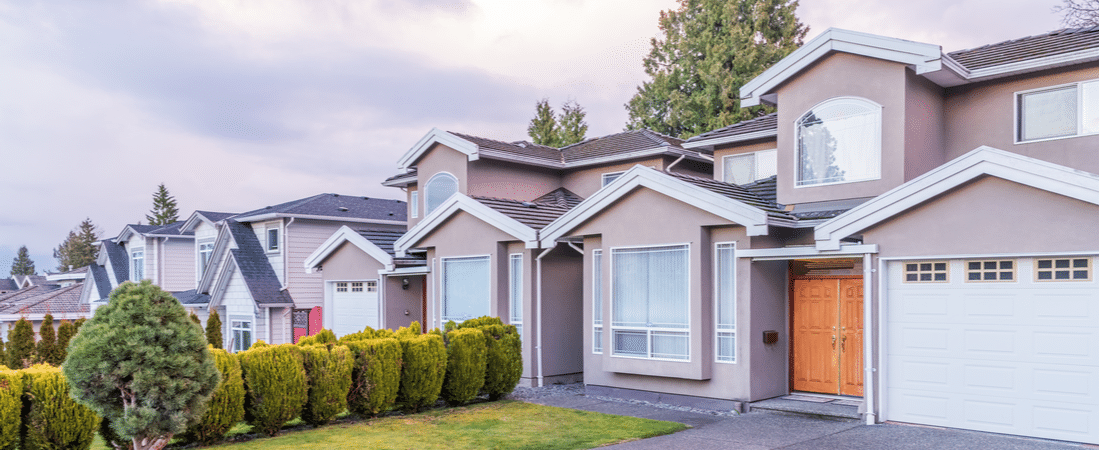Mortgage delinquency rates spike in 2020 due to COVID-19 pandemic. The latest loan insights show a 3.1 percent jump in overall delinquencies in just one year.
Mortgage Delinquency Rates Spike in 2020 Due to COVID-19 Pandemic
Having trouble paying your mortgage? If so, you’re not alone. Looking back in the early days of the pandemic, more than half of all homeowners told Bankrate they were concerned about making mortgage payments in May. Now, new loan insights from CoreLogic confirm there was a 3.1 percent increase in overall mortgage delinquency rates in June. The most extreme spike occurred in mortgages that were 90-days past due.
“The mortgage delinquency rate measures homeowners who are late making their mortgage payments. The CARES Act allowed federally-insured borrowers to put their mortgages into forbearance, which around 9 percent of all borrowers did, although that number has since fallen to less than 8 percent. Without the CARES Act forbearance rules, the number of mortgage delinquencies would have been far higher,” noted Ilyce Glink, syndicated real estate columnist and CEO of the financial wellness platform, Best Money Moves.
All states saw an increase in the 90-day delinquency rate, but COVID-19 hotspots were impacted the most, such as New York (up 3.7 percentage points), Nevada (up 3.4 percentage points) and Florida (up 3 percentage points). Metropolitan areas like Miami (5.1 percentage points, Odessa, TX (up 4.8 percentage points) and Atlantic City-Hammonton, NJ (up 4.3 percent) also topped the list for serious delinquency gains.
“Three months into the pandemic-induced recession, the 90-day delinquency rate spiked to the highest rate in more than 21 years,” said Dr. Frank Nothaft, chief economist at CoreLogic. “Between May and June, the 90-day delinquency rate quadrupled, jumping from 0.5 percent to 2.3 percent, following a similar leap in the 60-day rate between April and May.”
National Mortgage Delinquency Rates in 2020
Here are mortgage delinquency rates compared from June 2019 to June 2020 according to research by CoreLogic:
| Mortgage Delinquency Rates | June 2019 | June 2020 |
| 30 Days or More Past Due | 4.00% | 7.10% |
| 30-59 Days Past Due | 2.10% | 1.80% |
| 60-89 Days Past Due | 0.60% | 1.80% |
| 90-119 Days Past Due | 0.30% | 2.30% |
| 120+ Days Past Due | 1.00% | 1.10% |
| In Foreclosure | 0.40% | 0.30% |
CoreLogic predicts the 90-day delinquency rate could nearly double by early 2022, barring the kind of government programs and COVID-19 assistance that has been widely available to homeowners.
“Forbearance has been an important tool to help many homeowners through financial stress due to the pandemic,” said Frank Martell, president and CEO of CoreLogic. “While federal and state governments work toward additional economic support, we expect serious delinquencies will continue to rise — particularly among lower-income households, small business owners and employees within sectors like tourism that have been hard hit by the pandemic.”
COVID-19 Relief Resources for Homeowners
A U.S. Census Bureau survey conducted from July 2 to July 7 found that 25.3 percent of Americans (nearly 43.4 million people) either missed their last housing payment, or have little to no confidence that they can pay next month’s bill on time. According to Bankrate, 34 percent of homeowners didn’t know that communicating a financial hardship to their lender was an option, hadn’t gotten around to it, or were waiting for their lender to reach out first.
Homeowners who are struggling to make mortgage loan payments should first reach out to their lender and see if they are offering any COVID-19 relief options, like reduced or deferred payments, before skipping payments and becoming delinquent. Then, they should look into any state or federal COVID-19 relief programs that can help them. Check out our article on Understanding COVID-19 Resources for Homeowners for more information on how to find mortgage payment relief and assistance during the COVID-19 pandemic.
More on Topics Related to Mortgage Delinquency Rates in 2020 and the COVID-19 Pandemic
Coronavirus Relief: CARES Act 2020
COVID-19 Housing Impact: Which Homeowners Are Most Vulnerable?
How Will the Coronavirus Impact the Housing Market in 2020?
Coronavirus 2020: Home Buying, Selling and the Real Estate Market
COVID-19 Pandemic Update: Property Tax Payment Extensions and Penalty Waivers







Leave A Comment